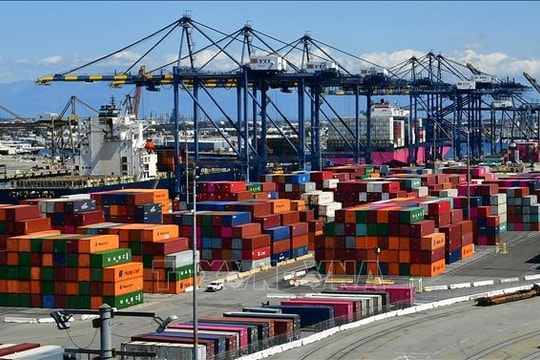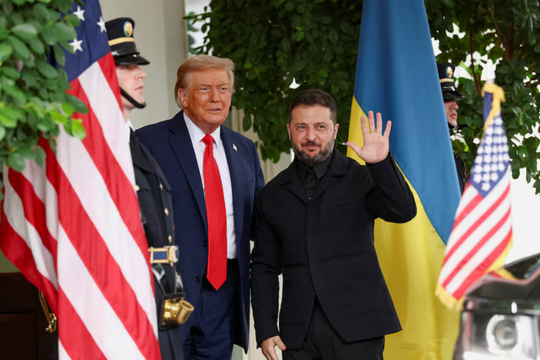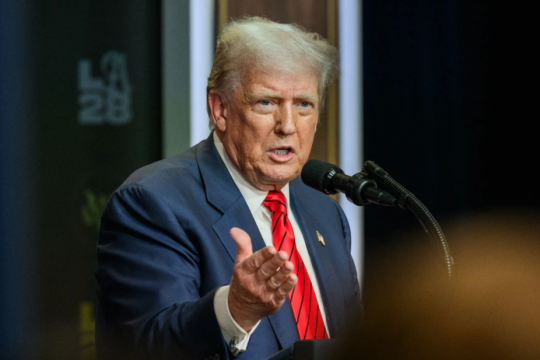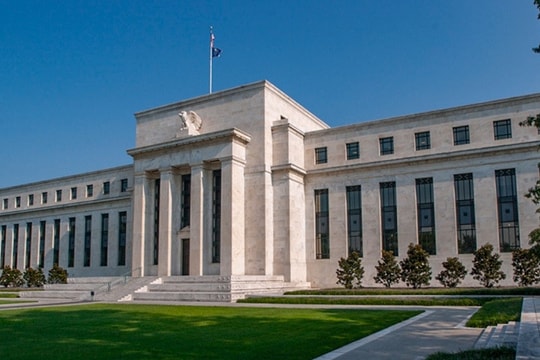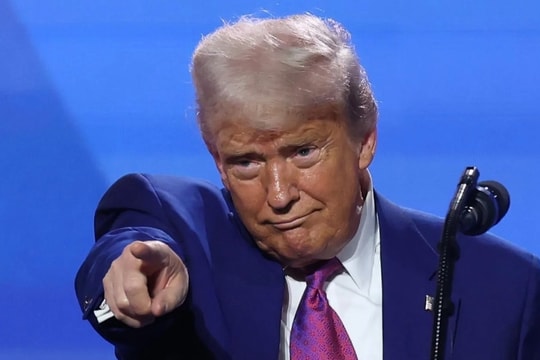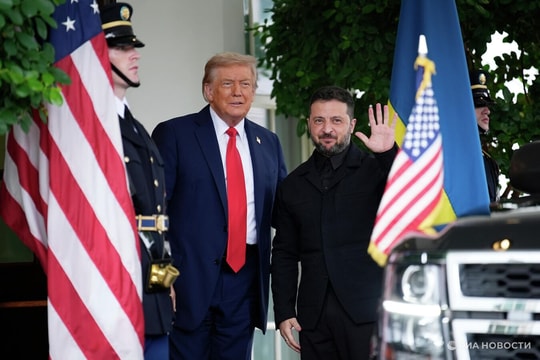Could Kim Jong-un be leaning toward the US because he dislikes Beijing?
Mr. Hong Seok Hyun, who served as special envoy for South Korean President Moon Jae In to the US in 2017 and is a former South Korean ambassador to the US, said that if the US and North Korea join hands, both sides will benefit.
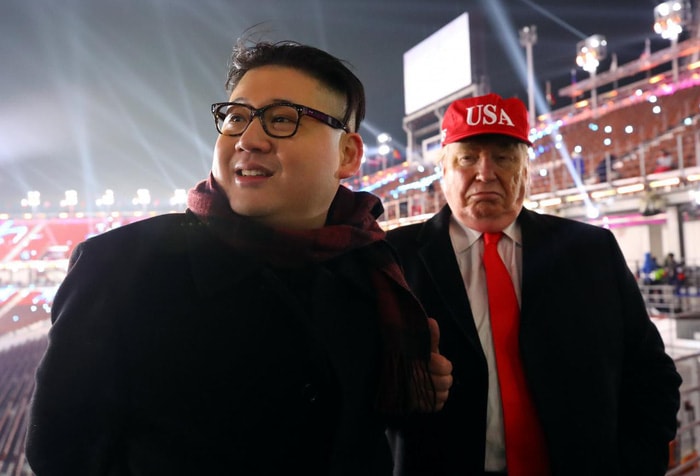 |
| Two impersonators of Mr. Kim Jong-un (left) and Mr. Donald Trump "made a mess" at the 2018 Winter Olympics in South Korea. Photo: Reuters |
These days, international public opinion is paying close attention to the special meeting between US President Donald Trump and North Korean leader Kim Jong-un, scheduled to take place next May.
Amidst the pros and cons, even skepticism, about this important meeting for regional security, former special envoy Hong Seok Hyun has a rather interesting proposal: a US-North Korea alliance.
In an article for the Washington Post published on March 14, Mr. Hong Seok Hyun provided analysis showing that both North Korea and the United States benefit from this alliance idea.
First, Mr. Hong pointed out that the late leader Kim Il Sung had already advised his successors to be careful with China.
This detail was cited by Mr. Hong from his meeting with South Korean President Kim Dae Jung at the first-ever inter-Korean meeting in Pyongyang in 2000. Mr. Kim Dae Jung met Mr. Kim Jong Il - the leader of North Korea at that time.
According to Mr. Hong, Mr. Kim Jong Il told Mr. Kim Dae Jung: "Even if North and South Korea are unified, I agree with you that US military forces in South Korea should be maintained."
During the Korean War, China helped North Korea fight against the United States. However, Kim Il Sung was still cautious with China, and this advice was passed from Kim Jong Il to his son and current leader Kim Jong-un.
Mr. Hong further evidenced this “carefulness” by citing the fact that Mr. Kim Jong Un, since taking power in 2011, has not once invited Chinese President Xi Jinping to Pyongyang. Last year, Mr. Kim Jong-un did not even meet with a Chinese envoy who brought Mr. Xi’s letter to North Korea.
In addition, Mr. Hong said that Pyongyang's hostile feelings toward Beijing regarding the United Nations' international sanctions were "beyond our imagination."
Therefore, when Mr. Kim Jong-un again hinted at an invitation to direct negotiations with the US, President Trump, if he had a sharp eye on the chessboard, should have clearly seen the anti-China sentiment in North Korea. And so, Mr. Trump should see the upcoming meeting with Mr. Kim Jong-un as a golden opportunity to maintain the US presence and influence in the Northeast Asia region.
In addition, Mr. Hong also thought that Mr. Trump should pay attention to the fact that Mr. Kim Jong Un is a basketball enthusiast and a fan of the National Basketball Association (NBA).
As a veteran diplomat, Mr. Hong sees that cultural similarities and interests in Mr. Kim, although rare, could be a bridge leading to Mr. Kim being able to "be pro-American" if conditions are optimized.
Economically, North Korea is trying to diversify its income sources and especially avoid dependence on China. This is nothing less than an opportunity for the US if the Trump administration can convince North Korea.
In that case, according to Mr. Hong, the US should pay attention to four things not to do: not to seek "regime change" or "overthrow the regime", not to try to force the unification of the two Koreas, and not to send troops to the 38th parallel area that separates North and South Korea.


